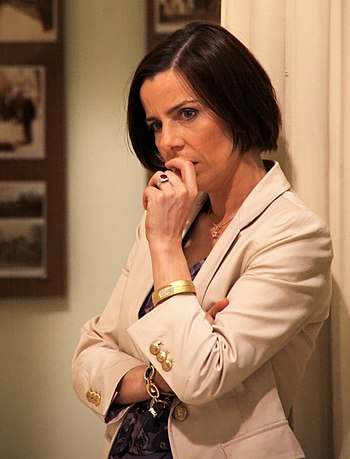A Catholic nun-to-be, Ida (Agata Trzebuchowska), learns that she is Jewish and that her parents were murdered in an anti-Semitic Poland during WWII. The person who discloses this information is Ida’s aunt (Agata Kulesza), a disillusioned former state prosecutor for the Polish commies. . . This is all I wish to say about the plot of the well-received Ida (2014) since so many reviewers have already described it, so I will go on to pronounce it a solid work of art about which Peter Rainer is absolutely right in his view that the film is “about the spiritual agonies of postwar Poland.”
What’s more, it exhibits how people respond to the fragility of their own lives in a place like postwar Poland: Ida, after all, is quietly rattled by what she learns. Patently, there are good responses and bad responses.
Pawel Pawlikowsky, the man who directed the annoying (to me) and ignorant My Summer of Love, has acquitted himself nicely with Ida, a film of black-and-white pictorial benefits. I mean shots such as that of Ida standing in a circular, below-the-ground spot for which the clergy surely have a name and telling a statue of Jesus situated there that she’s not yet ready to take her vows. Or the one where, at a fork in the road, she kneels and prays before a station of the cross while her aunt waits beside her car and smokes. With images like these, the movie cannot escape providing at least hints of depth and significance.
(In Polish with English subtitles)



